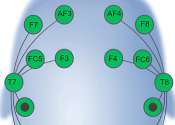The possible effects of sleep quality on cognitive function in healthy older adults
In humans, aging is often associated with changes in sleeping patterns, cognitive abilities and functional network connectivity (i.e., the strength with which activity in different brain regions correlates over time). While ...









